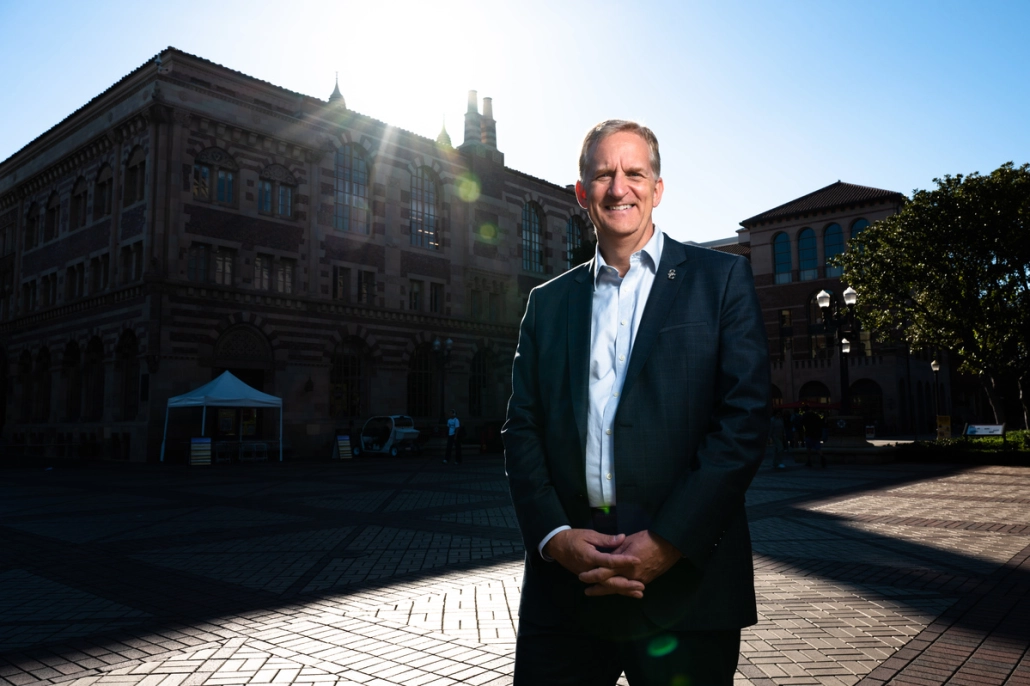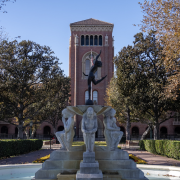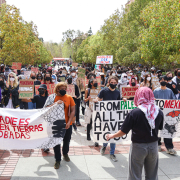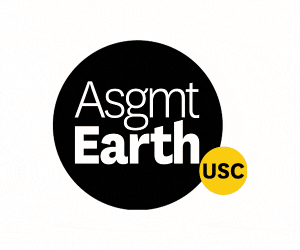Provost and Senior Vice President for Academic Affairs Andrew Guzman grew up between his Canadian and Dominican identities. Born and raised in Ottawa, Guzman often traveled to his father’s homeland, the Dominican Republic, to visit his family. During Latinx/e Heritage Month, the Daily Trojan sat down to talk to USC’s first Latine provost — and, formerly, the first Latine dean of the Gould School of Law — about what his Latino identity means to him and how his bicultural upbringing has shaped his career.
This interview has been edited for length and clarity.
Daily Trojan: What does it mean for you to be Latino?
Andrew Guzman: I spent a lot of time in the Dominican Republic when I was very young. It became about my lived experience. It’s always been part of my existence.
My father came to Canada in the ’50s. As the only Latino kid in a very white private school, his strategy — which some immigrants adopt — was assimilation. I grew up in a household that, in terms of its Canadian cultural context, would have looked very typical. But then I would frequently go to the Dominican Republic where everything was obviously typically Dominican.
I lived in two different places, which seemed totally normal when I was a kid. But, in retrospect, it is not normal for everybody. When I was 14, I’d go down to the Dominican Republic, and the cousins that were my age used to drink beer. I’d drink beer with them sitting next to my parents. If I ever was caught drinking beer in Ottawa at 14, I would have gotten in trouble. It never struck me as odd that these were both true at the same time. For me, it has that sort of bicultural reality.
I’m open-minded because of that. I saw my Dominican relatives, I saw my English Canadian reality at home, and I had French Canadian school teachers. When you’re a kid, you don’t try to make these distinctions, and they all resonated with me in the same way.
DT: In the last interview you had with the Daily Trojan, you mentioned you were not ethnically typical. Can you explain what you mean by that and how it has impacted your experience as a Latino?
AG: I am white and I don’t want to be heard as if I’m oblivious to that reality. I didn’t experience a lot of racial issues that are typical in the United States and Canada because of that. I don’t want to be heard to be claiming that I’ve faced those sorts of issues.
The flip side of that is that when I go to the Dominican Republic, the first thing people do is react to my appearance because in the Dominican Republic, I do not look typical. In Argentina, nobody would say anything. Once I was an adult operating mostly in universities, I learned very fast that the Latino community does not care at all. Nobody’s ever said to me, ‘You can’t count as Latino because of [your skin] color.’
I recognize that for people who have a different coloring or different hair or, for that matter, a different first name, they encounter a reality that is different in some ways than the one I encountered.
DT: How has your work on diversity, equity and inclusion initiatives been driven by your Latino identity?
AG: I’ve frequently been in places where I’m obviously from a different ethnic background. Whenever I’m in the Dominican Republic, even though my father’s from there, I don’t speak the language at a native level. I speak okay Spanish. In high school, I spent three months in Quebec where there’s very little English, and I spent a year in college in France. I’ve been in contexts where I feel that I’m not native to that community. I’ve learned about those spaces, but that’s what made me conscious of it.
Being Latino means that when I encounter folks who are Latino or Latino issues or Latino groups, there’s an affinity there. However, I’ve tried pretty hard — and I think I’ve succeeded — to not leave some form of bias of caring about DEI issues with respect to one group or another.
DT: What does it mean to you to be USC’s first Latino provost?
AG: It’s a sign of positive change. It’s a little bit alarming that I’m the first Latino provost, especially in our University in Los Angeles. But when senior positions get filled by a particular ethnic group or women, it is a positive sign because it means there’s been enough of a pool created. It suggests that the diversity of the faculty and the academic leadership is reasonably good.
Being the first Latino provost is great, but I don’t feel a lot of personal pride. I’m not sure I’ve achieved something there, but it’s a good sign that USC is at this place. In that sense, it’s a good thing and I do think it’s appropriate to note and celebrate the sort of milestones which are indicative of social progress.
DT: Can you expand on why you don’t feel personal pride?
AG: My role in this job has many components. Let’s pick DEI as one of those. The DEI component does not reflect the fact that I’m Latino. It reflects the fact that I’m provost. I come with a set of worldviews, commitments and beliefs that inform who I am. I think of the role as being the role that anybody in this position should pursue.
I hope I’m doing something out of a sense of good judgment that is not driven principally by my ethnicity; it’s driven by that it’s a good outcome. I’m not pursuing an agenda that is uniquely Latino. To the extent we’re engaged in DEI, as one example, I want to make sure that’s DEI across all the population, including groups I don’t belong to.
DT: USC has been criticized in the past for being monolithic in its Latine representation. Do you have plans to work on that?
AG: We have a long history of both celebrating the Latino community but also recognizing it’s incredibly diverse. There are some areas where it makes sense to speak of something called the Latino community at USC, but there are other areas where that’s less true — for example, in citizenship and immigration status. We have students who have been U.S. citizens for many generations, first-generation U.S. citizens, folks who are here under some traditional style of visa and Deferred Action for Childhood Arrival students.
It’s important for us to recognize those things without denying the existence of a Latino community, because there are instances where it makes sense to think as a group. It’s hard to identify exactly what makes one Latino, because it’s not a single set of cultural norms. It’s not skin coloring. It’s not a country of origin. It’s not a country of citizenship, certainly. I don’t get caught up in definitions because it becomes slippery.









